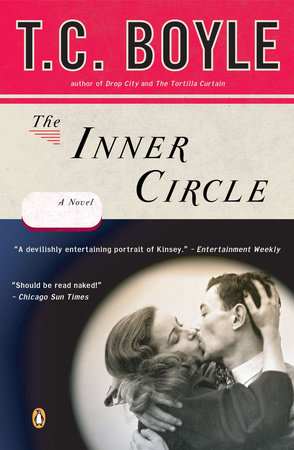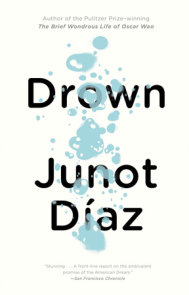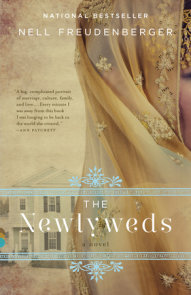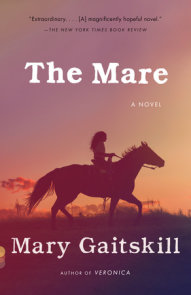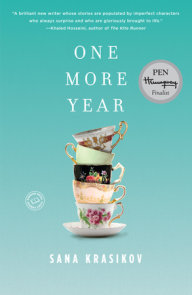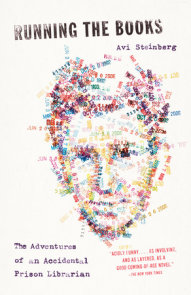READERS GUIDE
Questions and Topics for Discussion
INTRODUCTION
For John Milk, an admittedly “dull and conventional” senior at Indiana University on the eve of World War II, being appointed as a special assistant to Dr. Alfred C. Kinsey, professor of zoology, meant incalculably more than a modest paycheck and a desk in an obscure corner of Biology Hall. It was a chance to take part in the groundbreaking research of a brilliant and charismatic mentor, a man whose investigations of human sexuality were destined to captivate and astonish a nation. However, what neither Milk nor anyone else could anticipate was the dominance that Kinsey, known to his inner circle of researchers as “Prok,” would gradually come to assert over every aspect of Milk’s existence. Forever testing the boundary between legitimate inquiry and unprincipled voyeurism and promiscuity, Prok hires Milk to assist him in recording the sex histories of thousands of interviewees—data that will eventually form the basis for his two landmark studies of sexual behavior. It soon becomes clear, however, that Milk’s job will involve more than mere data collection. He becomes Prok’s partner in all manner of erotic experimentation. As he and Prok work and travel together in search of a definitive profile of sex in America, Milk finds it hard to tell whether he has signed on for a scientific investigation, a hedonistic joy ride, or a Dantean descent into the lowest extremities of sleaze and debauchery. Meanwhile, his work leads to a bizarre competition for Prok’s loyalties and affections. As Prok endeavors to cure Milk of every vestige of “sex shyness,” Milk’s wife, Iris, struggles to come to terms with the nature of her husband’s work and to win him back to a more traditionally moral way of life.
Basing his work in part upon the accounts and reminiscences of members of Kinsey’s actual inner circle, T.C. Boyle has crafted a discerning satire of American life. Although it is chiefly concerned with Prok’s obsessive pursuit of sexual knowledge, The Inner Circle also comments mordantly on the nature of marriage and family, as well as the compromises we make in hopes of earning love, acceptance, and a living. More than this, it is also about the power of love to reassert itself in the most trying and disorienting of circumstances. Building on the worldview he has articulated in such novels as World’s End, The Road to Wellville, and Drop City, T.C. Boyle continues to dissect the vanities and weaknesses of the human animal, showing us desire at its most elemental as well as its most poignant level. And yet, even as we are touched by Milk’s apparently losing battle for personal dignity and Iris’s struggles to prevent Prok and his Sex Institute from destroying her marriage, Boyle causes us to wonder whether we ought to be moved at all. Are the romantic and erotic entanglements of his characters fit subjects for sympathy, or are they merely the twitches and spasms of biological specimens, subjected to the dispassionate scrutiny of a clinical observer? Are we to understand Prok’s quest as satanically dehumanizing, or does it merely lead us toward a more despairingly accurate definition of what it is to be human? A restless and unsettling book, The Inner Circle is an edgy chronicle of lust, self-delusion, and hypocrisy that is capable of evoking every possible emotion except indifference.
ABOUT T.C. BOYLE
The Inner Circle is T.C. Boyle’s tenth novel. His previous novels include World’s End, The Road to Wellville,The Tortilla Curtain, and Drop City. The latter was a finalist for the 2003 National Book Award. His half-dozen collections of short stories include After the Plague, Greasy Lake, If the River Was Whiskey, andWithout a Hero. He is a five-time recipient of the O. Henry Award, which honors outstanding American short fiction. He holds a PhD in literature from the University of Iowa and an MFA from the University of Iowa Writers’ Workshop. Since 1978, he has taught in the English department of the University of Southern California.
A CONVERSATION T.C. BOYLE
You are a writer who has argued that critics and explanatory apparatus should not come between the text and the reader. You have also suggested that authors should stay away from interpreting their own work. But here we are, getting ready to create an apparatus that may do just those things. Do you feel as ambivalent about doing this interview as I do?
Not at all. Readers certainly have the right to query a writer about his/her work, but they must understand that interpretation is individual and that the author should never seek to impose any interpretation on his own book.
Readers who, after reading The Inner Circle, take the trouble to hunt down the memoirs of Dr. Kinsey’s actual inner circle may be surprised to discover how essentially faithful your novel is to the character and practices of Kinsey as his followers saw them. You were dealing with a factual story that is already stranger than a lot of fiction. What were your goals in retelling that story in fictional form?
As I’ve done in Riven Rock and The Road to Wellville, with their explorations of the lives of the historical figures Stanley and Katherine Dexter McCormick and Dr. John Harvey Kellogg, respectively, I’ve found in this material some juicy historical tidbits that reflect on who we are now. What the history does not give you is drama and motivation, nor does it fully explore character. I like to dredge up incidents from the past in order to imagine them more fully—how did Kinsey’s colleagues feel about their own sexuality? Is sex merely a biological function, as Kinsey would assert, or does emotion—love—transform it into something else altogether? These are just two of the pertinent questions the history leaves unanswered.
Through a minor character you have christened Vivian Aubrey, The Inner Circle pays oblique homage to Lolita, which includes lesser characters named Vivian Darkbloom (an anagram for Vladimir Nabokov) and Aubrey McFate. In what ways was Nabokov on your mind when you were writing The Inner Circle?
Interesting observation. Obviously, Lolita (1955) had a similar impact on our ability freely to discuss sexuality as Kinsey’s two volumes of sex research, Sexual Behavior in the Human Male (1948) and Sexual Behavior in the Human Female (1953). Certainly, too, Nabokov’s playfulness and the ravishing beauty of his prose are ongoing influences, but I did not reread Lolitawhile preparing for The Inner Circle; instead, I’ve just recently reread it, as grist for the novel I have just recently (June of this year) begun, a novel that has little to do with sexuality (or pedophilia, for that matter), but may well be inspired by the marvelous road-novel quality of the Nabokov book. But oh, that Vivian Aubrey!
On the subject of influences, there is also a Faustian quality to The Inner Circle. One might argue that Prok plays the role of Mephistopheles, appearing to offer gratification to John Milk while in fact delivering only emptiness and enslavement. Goethe gave Faust’s beloved a flower name: Gretchen or Margaret, which means “daisy.” You give Milk’s wife another flower name, Iris. Any comments on the Faustian connection?
Yes, the flower names are apposite, I think, not simply in a Faustian connection, which would, I think, too much direct the reader’s response to Prok, but because of Prok’s earth connection and his fascination with his garden full of lilies and irises.
To what do you attribute your attraction to mad scientists?
The dialectic between science and religion has influenced just about everything I’ve written. Who can give us the great metaphysical answers, the answers we all yearn for through every moment of our conscious lives? Who can lead us? Who can make sense of the world? Certainly any number of religious charlatans have stepped forward (see Elmer Gantry) and no small number of scientists in our age. We are lost and wandering and afflicted with messiahs, with gurus, with people who will make everything all right if we only give ourselves over to them, body and soul.
Some of the most convincing candidates for the title of Great American Novel (Moby-Dick, The Great Gatsby, and All the King’s Men come to mind) concern charismatic, obsessive, larger-than-life heroes seen through the eyes of fascinated, awestruck followers. Your own work is rife with obsessive concerns: alternative healing, radical environmentalism, and now sex. Do you have any thoughts on why obsession is so central to American letters?
Writing, as Orwell has said, derives firstly and primarily from egoism. There is no profession, not whale chaser, gangster, or politico, that involves more ego-driven fanaticism than writing. We are the true fanatics, we who lock ourselves away in a fantasy world and then spring that fantasy upon the world of the solid, the decent, and the taxpaying.
In The Inner Circle, Prok is described as loathing euphemisms. Milk, for his part, tries to tell his story from a suitably clinical perspective, befitting a scientific researcher. But to a great extent, writing seems to be about the nonliteral use of language; to engage in effective troping requires the writer to call a spade something other than a spade. Was it a challenge to write creatively about characters who, despite their high intelligence, are so removed from the poetic uses of language?
Indeed, yes. Because this is a first-person narrative (only my second, after Budding Prospects), I was restrained by having to inhabit John Milk and to think and write as he would have. In Budding Prospects, I had a great deal more freedom with my narrator, Felix Naysmith, because he was a wise guy and a contemporary, word-obsessed, chock-full of metaphor and stylized description. Still, I do think readers will find a certain beauty and lyricism to the language of the book—language is all, and I could never find myself inhabiting a narrator who lacked its power.
The Inner Circle obviously brims with sexual activity. Nevertheless, it presents relatively few highly graphic descriptions of that activity. Milk and Prok both seem at times to feel that, if you enjoy something, then it’s no longer scientific and therefore becomes invalid. As I read the book, I sometimes felt as if I were experiencing the emotional downsides of the acts being described without being allowed to feel their pleasure. Why so much sex and so comparatively little release?
I don’t know that all readers will feel as you do—this is a very sexy book, after all, and yet mere depictions of sex acts are the stuff of potboilers, are they not? The sex here is perhaps shocking and outrageous and perhaps sometimes romantic and beautiful too, but largely the activity has constantly to be categorized by our narrator, Milk, as his training constricts him. Remember, this is sex as seen through the very conflicted eyes of a sex researcher.
You have described yourself as always having written about human beings as an animal species among other animals. This stance is pretty close to Prok’s point of view. What other affinities do you see between yourself and Alfred Kinsey?
We are both type A personalities and we are both charismatic performers. I, however, would like to think of myself as free from the cant of a Kinsey and I would like to see myself as a much deeper thinker and more humane, more loving, more aware. But of course, I have the hindsight of history on my side.
Throughout The Inner Circle, Prok and Milk both deny the significance of the soul, which they regard as a fiction for the fuzzy-minded and an impediment to sound research. And yet their very efforts to repress the soul would seem to attest to the persistence with which ideas of the spiritual tend to reassert themselves. You are a famously nonmetaphysical writer, yet spiritual concerns keep popping up in one way or another. Any thoughts?
I believe we’ve addressed this earlier—in short, at any rate. Let me add this: I live by the senses, as we all do, but I yearn—in nature, in human contact, in art—for something visionary and mystical, something more than the sad brutal round of animal existence. (And please don’t forget Walter Van Brunt’s dislocation as a result of having read the existentialists at an impressionable age in my 1987 novel, World’s End. Poor Walter. Poor Jean-Paul. Poor Albert. Poor me.)
The Inner Circle is about conflicts among desires: the desire for acceptance by a father figure, the desire for pleasure, the desire for loyal, unquestioning love, and countless others. Your novel illustrates the supreme difficulties of having all these wants fulfilled at once. What desires matter most to you?
Another fine observation. What matters to me? All you’ve mentioned, including the “countless others.” I keep coming back to the last line of the novel, which, I think, speaks to your observation here. The load is very heavy indeed, and the temptation to have it released is enormous.
Prok openly confesses his voyeuristic tendencies. Viewed in a certain light, isn’t there a voyeuristic component in fiction writing as well?
Mais oui. And here, of course, you hit on another theme running through The Inner Circle. We relish the confusion of Milk and Iris, we feel for them, we see them in ourselves, and yet they are not us. Oh, no: we are far better than that. Isn’t that part of the joy of voyeurism—so that’s how they do it!—and of art too?
Your work seems to emerge from a strange collection of feelings. On the one hand, you evince the exuberance of someone who delights in the use of words and in the sheer untidy irrationality of life, but on the other hand you communicate the depression of someone who senses that we are all basically screwed in the long run. How can you be so up and so down at the same time?
It’s called manic depression (or, more fashionably, bipolar disorder)—very common to writers. But I can’t leave you with such an arch answer, as this is the final question, so let me say this: we embrace the beauty and the strangeness of the maddening mystical voodoo of the only world we will ever know, and at the same time we are bereft in spirit because we know we must leave it. But please, no weeping out there, and remember, I didn’t invent the rules.
DISCUSSION QUESTIONS









